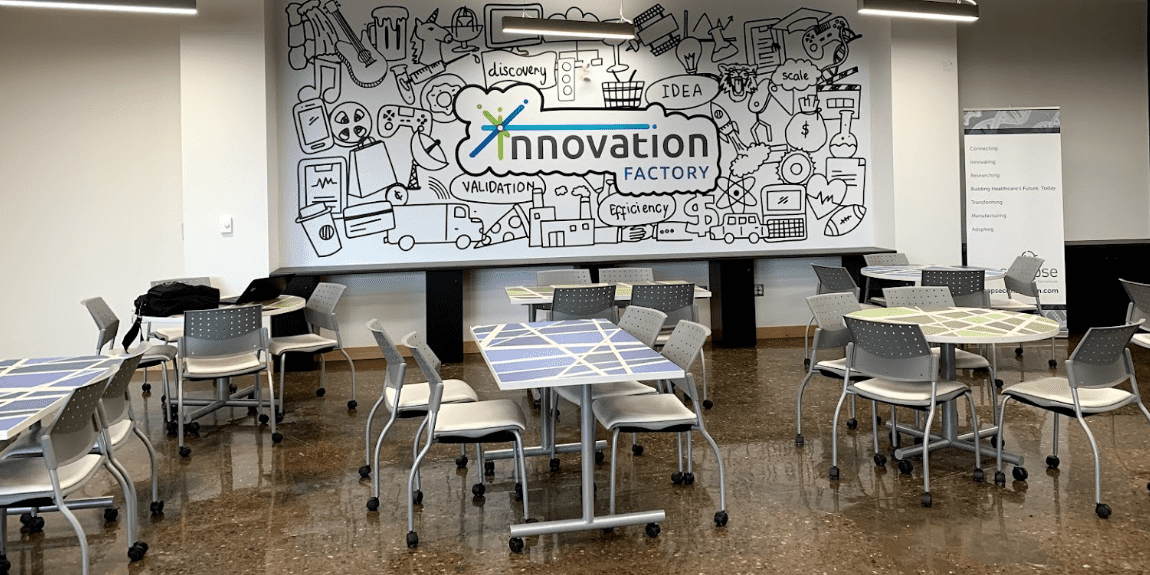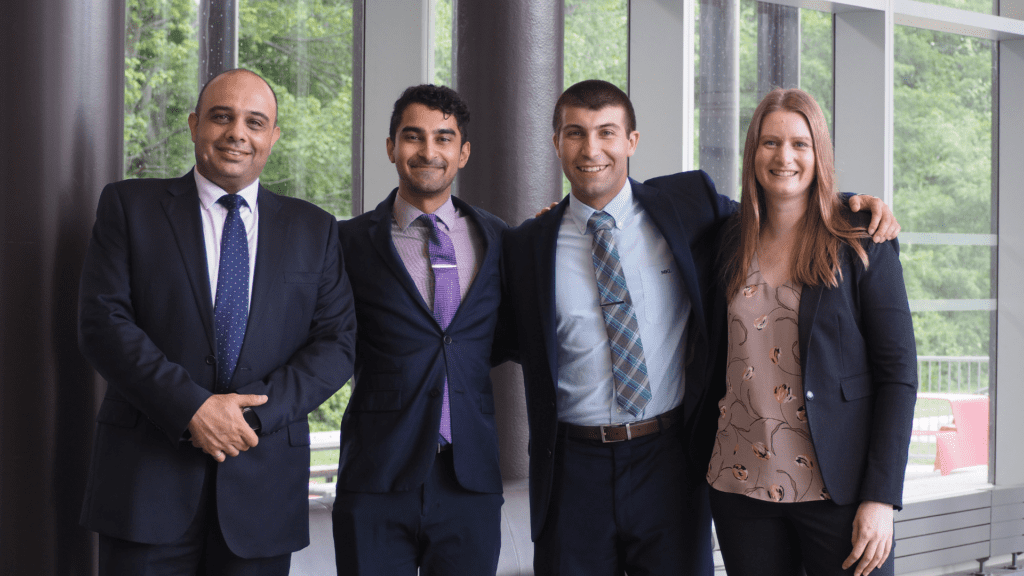Creator of ‘Lymphonator’ cancer care device wins Hamilton’s Innovation Factory life science competition
Published March 24, 2022 at 11:49 am

Tenomix, with its “Lymphonator” cancer care device was the big winner at the ninth annual Synapse Life Science Competition from Hamilton’s Innovation Factory.
The Lymphonator is a robotic scanning device that searches for lymph nodes in resected cancer tissues and marks their locations for efficient extraction. The task is normally completed by hand by pathology staff, which Tenomix says “makes the process labour, time, and resource-intensive.” Smaller lymph nodes may also be missed due to the limitations of human touch.
Based in London, Ontario, Tenomix was named the grand prize winner, taking home a prize of $50,000 in cash along with an in-kind prize package courtesy of Shift Health, an in-kind legal package from Ridout & Maybee LLP, and a one-year membership with Life Sciences Ontario and the Hamilton Chamber of Commerce.
The company’s founder and CEO, Saumik Biswas says Tenomix was able to build relationships with Hamilton’s robust health sciences community through the Synapse Life Science Competition.
“Participation in this competition has allowed my team and I to create a strong investor-ready business plan and pitch deck, while also building strong collaborative relationships with pathology staff at Hamilton Health Sciences, St. Joseph’s Healthcare Hamilton, and Juravinski Cancer Hospital,” said Biswas. “The cash prize and in-kind services received from this competition will help us reach our next critical milestones, which are to finalize our beta-prototype and conduct a clinical pilot study.”
“Receiving this recognition also helps us get one step closer to our vision, where we plan to be at the forefront of pathology innovation, providing pathology staff with the right tools to help deliver the best patient care,” added Biswas.

The Tenomix team: (left to right) Sherif Abdou, Saumik Biswas, Michael Lavdas, and Eveline Pasman
This year over $175,000 was awarded in cash and prizes through Innovation Factory’s pitch competition.
Goji Technology Systems Inc took second place, receiving $20,000 in cash, an in-kind legal prize from Gowling WLG, as well as a one-year membership with Life Sciences Ontario and the Hamilton Chamber of Commerce.
Goji Technology Systems Inc. is a health technology company that makes it easier for clinicians to deal with their computers in healthcare. Essentially, their technology allows clinicians to simply use voice commands to automate data entry, data selection, and other routine actions.
Kultura Diagnostics came in third place, receiving $7,500 in cash, an in-kind Legal package from Bereskin & Parr LLP, as well as a one-year membership with Life Sciences Ontario and the Hamilton Chamber of Commerce.
Kultura Diagnostics provides an integrated easy-to-use medical device and digital therapeutic solution for clinicians and patients to diagnose and manage gluten sensitivities.
HDAX Therapeutics won the “Quick Pitch” prize of $2,500 cash for their small molecule therapy that could have an impact on Alzheimer’s Disease.
HDAX Therapeutics is developing targeted therapeutics for the treatment of brain cancers and neurodegenerative disorders, by selectively targeting the disease driver protein HDAC6 in the brain.
This year’s Synapse Competition judges included Alex Ross, Counsel at Gowling WLG, Dr. Jennifer Hamilton, Senior Director, New Ventures (Canada) for Johnson & Johnson Innovation, and Lu Han, PhD Partner at Lumira Ventures.
Each year, the innovators selected as finalists form teams with post-secondary students. Together, the teams participated in three months of intensive training, where they produced commercialization plans and investor pitches for their ventures.
insauga's Editorial Standards and Policies advertising





